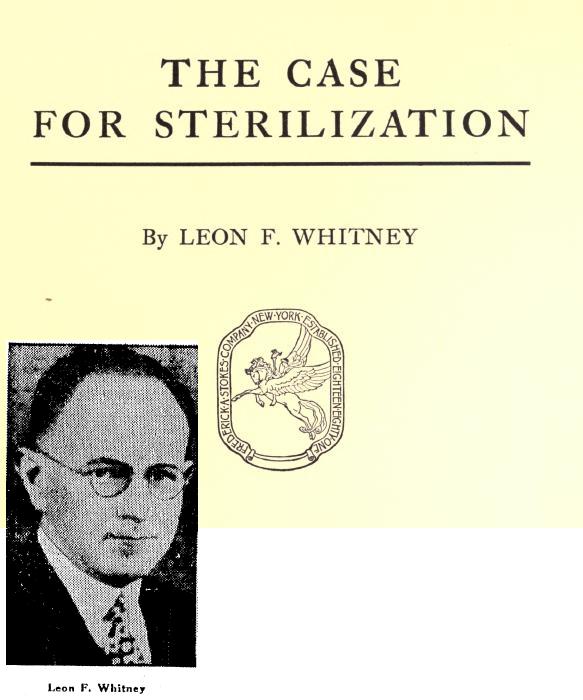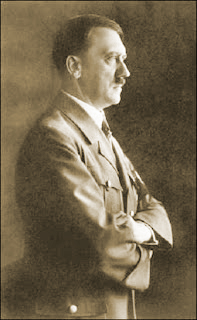by Evropa Soberana
Nuremberg Congress of 1934
The world was dying of Judaism and that disease of Judaism that is faith in Jesus; We teach it the violence and faith of the sword. —Jorge Luis Borges, Deutsches Requiem.
The Third Reich
Hitler’s Germany was the culmination of all the processes we have seen, and it was at the 1936 Berlin Olympics where the Germans tried to present themselves as health advocates, announcing their commitment to body culture.
World War II marked a before and after. Before the Third Reich, these issues were talked about without fear. During the Third Reich, they were applied. After the Third Reich, the Pharisees of finance and the media made everything that is eugenic and genetic surrounded by a politically incorrect fog.
In addition to the men cited here, we can mention other prominent scientists who had a prominent role in the elaboration of the Nazi eugenic ideology (known as Rassenhygiene or ‘racial hygiene’), such as Fritz A. Lenz, Erwin Baur, Alfred Plötz, Ernst Rüdin and Ernst Häckel.
 Leon F. Whitney (1894-1973), American veterinarian, dog trainer, canine psychologist and secretary of the American Eugenics Society, as well as the author of The Basis of Breeding, a book on eugenics for the layman.
Leon F. Whitney (1894-1973), American veterinarian, dog trainer, canine psychologist and secretary of the American Eugenics Society, as well as the author of The Basis of Breeding, a book on eugenics for the layman.
The following quotation expresses the opinion of many eugenicists of his time: that the Third Reich was the first State to take from theory to practice all the postulates of almost a century of eugenic debate. This quote, from 1934, was delivered the same year that Whitney proposed the sterilisation of ten million ‘defective Americans’ at a time when the United States had 126 million inhabitants:
Many far-sighted men and women in both England and America have long been working earnestly toward something very like what Hitler has now made compulsory (The Case for Sterilization, page 36, ‘Nazi Connection’).
 Hans F. K. Günther (1891-1968), anthropologist and professor at the universities of Jena, Berlin and Freiburg, with enormous knowledge of history and classical culture and extensive humanistic training. A Nordicist pioneer who, although he failed in small details, Günther broadly succeeded and left an open path regarding eugenics, Nordic blood in Greece and Rome, and pagan-Germanic romanticism.
Hans F. K. Günther (1891-1968), anthropologist and professor at the universities of Jena, Berlin and Freiburg, with enormous knowledge of history and classical culture and extensive humanistic training. A Nordicist pioneer who, although he failed in small details, Günther broadly succeeded and left an open path regarding eugenics, Nordic blood in Greece and Rome, and pagan-Germanic romanticism.
Laying the foundations of Nazi racial thinking, and joining the NSDAP in 1932, Günther had an important influence on the racist doctrine of the Third Reich. He was also respected outside German borders, in academic settings of the United Kingdom and the United States. In 1935 Günther was declared ‘Pride of the NSDAP’ and in 1940 Hitler awarded him the Goethe Medal of art and science. After World War II he spent three years in an Allied concentration camp.
Günther never retracted his teachings. He published in 1951 a book that provides some guidelines for the election of a spouse and in 1959 another warning: that in Europe the stupidest people reproduced faster than the intelligent ones, and that that process had to be stopped by ‘family planning’. Günther contributed to the organisation of the Northern League (a Nordicist organization) and denied the Jewish holocaust until his death.
The conviction of the strength of the inheritance may have been weakened by the penetration of Christian ideas, with their accentuation of the separation of body and soul, spirit and flesh… (‘People and State, Inheritance and Selection’).
We must not be afraid to express an unpleasant fact for many educated people of our day: that the same vital laws are valid for the human being as for the animal. It is a side-effect of the medieval-ecclesiastical separation of body and soul, of flesh and spirit, that today more than one cultured person, before the hereditary health doctrine, speaks disparagingly of ‘animal husbandry’ or ‘dog breeding’. It has never seemed plausible to me that the animal is something so low that a comparison with Man cannot be authorised (Ibid.).
The large sums of money that today serve to lower the cultural level will be free, for example, for child allowances in economically weak families with good hereditary predispositions; that is, families that despite their good hereditary predispositions are in a state of need (Ibid.).
Especially for the hereditary capable female youth it is necessary to tell her, in the face of the current educational hoax, that for the German people it is vital that a hereditary high-value young woman, after the corresponding election of the spouse, see her hereditary qualities reborn in a group of their own children, and not through… the academic path of lack of children (Ibid.).
 Adolf Hitler (1889-1945). Much has been spoken, written and speculated about Hitler and his eugenics. Nothing new is going to be written about him here. We will simply ask a question before letting him speak: How many of those who criticise him have really bothered to know his opinions firsthand? Why are there countries where his writings or speeches are censored? If Hitler was so wrong, why are we afraid to read what he left written (let alone his speeches)? Precisely with the idea of clearing the unknowns about his doctrine, Hitler prepared, in prison, his Mein Kampf (My Fight). Anyone who pretends to refute or hate Hitler should read this book first.
Adolf Hitler (1889-1945). Much has been spoken, written and speculated about Hitler and his eugenics. Nothing new is going to be written about him here. We will simply ask a question before letting him speak: How many of those who criticise him have really bothered to know his opinions firsthand? Why are there countries where his writings or speeches are censored? If Hitler was so wrong, why are we afraid to read what he left written (let alone his speeches)? Precisely with the idea of clearing the unknowns about his doctrine, Hitler prepared, in prison, his Mein Kampf (My Fight). Anyone who pretends to refute or hate Hitler should read this book first.
______ 卐 ______
Editor’s note: The PDF My Fight is
available through this site (here).
______ 卐 ______
[The Jewish quarter] does not want to see a healthy and robust generation. It wants only a contaminated flock apt to be subdued. (My Fight, Volume I, chapter 11).
A racialist State will have, in the first place, the duty to remove marriage from the plane of perpetual racial degradation and consecrate it as the institution destined to create beings in the image of the Lord and not monsters, half man, half monkey…
It is the duty of the Racial State to repair the damages caused in this system. It must begin by making the question of Race the central point of general life. The State has to ensure the preservation of its purity and to consecrate the child as the most precious asset of the people…
Supported by the State, racial ideology will eventually achieve the advent of a better time, in which men will be less concerned with the selection of dogs, horses and cats than raising the racial level of Man himself. (My Fight, Volume II, chapter 2.)
When I tasted the soup of the people of Schleswig-Holstein, it occurred to me that the gruel of the Spartans cannot have been very different. In the time of the great migrations, the tribes were the product of ceaseless mixtures. The men who arrived in the South were not the same as those who went away. One can imagine two hundred young Friesians setting out for the South, like a tank setting out across the country, and carrying with them men belonging to other tribes. The Croats are certainly more Germanic than Slav. The Esthonians, too, have a lot of Germanic blood (Table Talk).
More importantly, we must educate young people about the beauty of the movement, the beauty of the body and the beauty of the spirit. Athletics, personal development, physical training, public competitions, and the resurgence of artistic representations based on Greek models, will help girls know how the man who deserves them should be, and also that the boys know what is the ideal woman. They will voluntarily turn their backs to the flirtatious dolls with dyed hair, painted faces, thick lips and red nails…
And a high selective ‘yes’ will become more important as we look like the people as a single entity. From an early age, day-care, elementary school, Hitler Youth and the German Girls League, all classes must join… (Quoted by Otto Wagener in Hitler: Memories of a Confidant.)
I have studied with great interest the laws of several American States dedicated to preventing the reproduction of persons whose progeny would not be of any value or would be harmful to racial lineage. I am sure that, occasionally, errors occur as a result. But the possibility of excess and error is still not a demonstration of the incorrectness of these laws (Ibid.).









